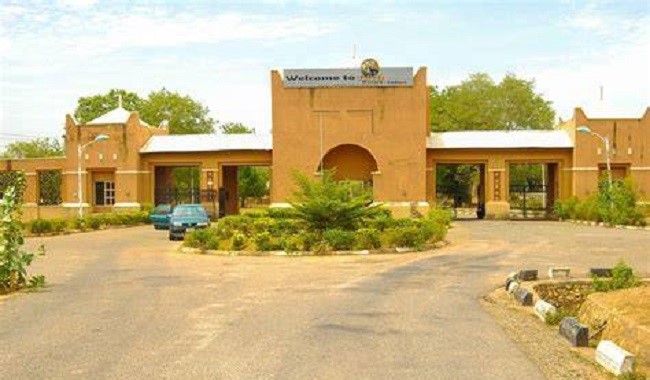The Yankari Game Reserve, one of Nigeria’s premier national parks, has been engrossed in numerous challenges threatening its survival.
These challenges range from poaching, insecurity, climate change to lack of investments and political commitments.

Located in the southern part of Bauchi State, the myriad of challenges bedeviling the park is gradually pushing it to a state of total decline and extinction of its wildlife population.
Sprawling across more than 2,200 square kilometres of pristine savannah, Yankari is a magnet for local and international visitors; its rare wildlife, breathtaking landscapes and iconic Wikki Warm Springs made it a household name.
In the 1970s and 1980s, the reserve recorded up to 20,000 visitors annually, boosting Bauchi’s economy and putting it firmly on the global tourism map.
Today, the picture is starkly different: wildlife numbers have dwindled, facilities have fallen into disrepair, and tourist arrivals plummeted.
Roads within the reserve are poorly maintained, game-viewing infrastructure is failing, and insecurity in surrounding communities has scared away potential visitors.
Elephants, lions, buffaloes, antelopes, baboons, and other species still roam Yankari, but conservationists warn that their survival is under threat.
Poachers, often armed with sophisticated weapons, continue to hunt with impunity, targeting elephants for ivory, killing antelopes for bush-meat, and feeding the illegal wildlife trade.
The human threat extends beyond poaching; banditry, cattle rustling, and farmer-herder clashes in nearby communities have spilled into areas bordering the reserve, creating a climate of fear.
Tour operators say bookings have sharply declined in the past three years.
Dr Ismail Bala, an Environmentalist and Conservation Advocate, said that the foremost game reserve was at a breaking point.
“The ecosystem is collapsing slowly and unless urgent steps are taken, the reserve may lose its value, as a major tourist destination,” he said.
Mr Samuel Garba, a long-time stakeholder in Yankari’s tourism business, said that the reserve used to receive hundreds of tourists during festive periods.
“Now, bookings are rare; people do not feel safe,” Garba said.
Observers say the ripple effects on the local economy are severe.
For decades, the reserve supported hundreds of jobs: tour guides, drivers, artisans, food vendors, and craft sellers.
Now, many have abandoned their trades or migrated to cities in search of work.
Tourism expert Dr, Sambo Audu, believes the situation calls for a coordinated, multi-agency rescue effort.
“We need stronger wildlife protection laws, improved security, and active community engagement.
“Sustainable tourism policies that empower locals are essential; without urgent intervention, Yankari risks becoming a relic of its past glory, a wildlife haven silenced by bullets and fear,” Audu said.
Meanwhile, the Gov. Bala Mohammed-led Bauchi State Government says it is determined to reverse the decline and reposition Yankari as Nigeria’s leading ecotourism destination.
Under the newly established Bauchi State Tourism Development Corporation law, several measures have been rolled out to boost security, improve facilities, and strengthen conservation partnerships.
Dr Mohammed Nasir, Managing Director and Conservator General of the corporation, said the government was taking a multi-pronged approach such as installation of 24/7 solar-powered lighting across the reserve.
“The steps include the procurement of new vehicles and modern patrol kits for rangers, as well as joint security patrols involving police, other agencies and vigilante groups.
“Installation of virtual surveillance equipment to monitor activities within the reserve and refurbishment of tourist facilities at Wikki Warm Springs, including upgraded toilets and changing rooms.”
Nasir said rangers had also undergone advanced training through the Agro-Climatic Resilience in Semi-Arid Landscape (ACReSAL) project.
“Partnerships with the Wildlife Conservation Society (WCS), the North East Development Commission (NEDC), and ACReSAL have brought donations of firearms, binoculars, uniforms, and other patrol equipment.
“These interventions are already producing encouraging signs.
“We have elephants giving birth in the reserve again, which means they feel safe; we are creating an enabling environment where the reserve can once again generate significant revenue for the state,” Nasir said.
A conservationist, Daniel Katanga, said that in spite of the renewed commitment, restoring Yankari to its former glory would take time, consistent funding, and strong community involvement.
“Beyond protecting wildlife, local residents must see tangible benefits from conservation efforts to become active partners in safeguarding the reserve.
“For now, the reserve stands at a crossroads, its survival depending on whether government promises translate into sustained action.
“Without it, the rustling grasslands, the trumpeting elephants, and the crystal waters of Wikki Warm Springs may soon become little more than fading memories of a paradise lost,’’ he said.
A report by ACReSAL, says the intervention to salvage Yankari is not just about providing equipment – it is about long-term change.
“All maintenance and repair costs have been incorporated into the Bauchi State Ministry of Tourism and Culture’s budget, ensuring that the improvements at Yankari are here to stay.
“A Baseline Study and a 10-year (2025-2035) Management Plan are being developed to ensure that Yankari remains a leading ecological and tourist destination for years to come.
“This Yankari story shows that with the right tools, training, and support, even the most neglected places can be revitalised,” it said.
From the foregoing, stakeholders believe that with the political will and efficient management, Yankari can be revamped and kept on its feet again.
By Ahmed Kaigama, News Agency of Nigeria (NAN)
